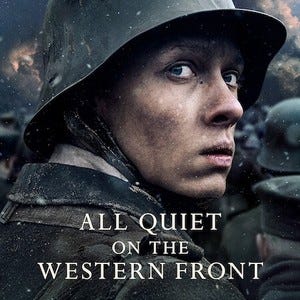The Side Character's Story
Your story is important, Here is why.
While I was in university, every association would hold orientation programmes for the “freshers.” They would invite scholars (first-class or near) to come and explain how they did it and how they achieved that result. This process would be repeated every session, but a question arose within me: Does this program generate the required outcome and how can it be improved?
A lot of the same mistakes made by students are continuously being made and a theory I have as to what could be contributing to this problem is that the best of the best did not make these mistakes in the first place.
All stories are important—not only the stories of winners but also the stories of the not-so-lucky ones, the stories of those who tried their best but did not achieve their goals, the stories of those who did not try and did not fail, the stories of those who did not try but failed.
Although highly successful people put in the hard work, that is not to say that those who are not did not, A friend once narrated a personal story to me, she had led her department from 100 level almost to the end, but around 300 level or 400 level, she fell sick and ended up writing all her exams in the hospital, and she was not able to make first-class nor finish as the best-graduating student of her department. People would naturally ask questions and interview the B.G.S., which is good; don't get me wrong, but they also lose insight into how to better approach my friend's situation if they ever find themselves in that situation.
Another misconception people have is that stories of the average individual don't sell or are not so interesting. The movie “All Quiet on the Western Front” defies this and tells the story of an average soldier in the army. The movie won multiple awards and has received a lot of positive reviews. Kindly watch the movie to understand, I highly recommend it.
All stories are unique, and no story is average. We need more stories of normal people, so why not share your story today and not overthink it? All stories matter and can make a difference.
Something to note: There are lots of ways to tell stories, and it does not have to take a one-dimensional approach. An example is what I am doing now, but the easiest way to do that is through direct conversations. I used to talk to a lot of my juniors in university and share a lot of my fails and wins with them, and this was the way some of my seniors also did. Another way is by shaping and changing the narrative. When you get into a position of authority and power, you can ensure decisions are made that allow all stories to be told.
Extras:
I was having a conversation with a friend, and we concluded that the greatest leaders and dictators were probably not normal—not normal in the sense that they were not humans, but they had insane luck.
While speaking in an interview on the Hausa Service of the British Broadcasting Corporation in 2020, Major Hamza Al-Mustapha, a former Chief Security Officer to the late Gen. Sani Abacha, said there were eight attempts to topple the maximum ruler before he died, and Nigerians only knew of three coup attempts that his boss survived.
Our former president, Goodluck Jonathan, not only did his boss, the president, die, enabling him to become the acting president, then the president, but when he was deputy governor, his boss was impeached, and he became the governor, I even used to hear stories, which I do not know were true or not, of his school captain also leaving the school, making him the captain.
While this is not the case for everyone doing well, the dangers of listening to only the winners might be enormous.
Side note: I am not advocating for dictatorship, but their stories are worth reading.
JARA CONTENT
In Chinese, all you need to do to ask a question is to add 吗 (ma) to the end of every sentence.
References
https://punchng.com/abacha-survived-eight-coup-attempts-al-mustapha/
https://www.chineseboost.com/grammar/ma-ne/



Quite a good read, thanks for sharing.
I absolutely agree that all stories (experiences) are important (and if possible, should be shared). Depending on how you look at it, the implications are quite interesting I'd say.
Take History for example, whilst there might be the "Official account", what about the experience of some middle class family or an undergraduate student? or perhaps an ordinary soldier or even a community leader? It's the same moment in time, but surely their stories would be different. And I for one, would like to hear, read and see these multiple narrations.
Your piece helped organized some of my thoughts on an article I'm preparing which is closely related to history and stories. Thank you again. 🙂